How to Start a Mediterranean Diet in 5 Steps
The Mediterranean diet has been studied for over 60-70 years now. Starting with the Seven Countries study and continuing from there with several large observational studies, research repeatedly has shown that compliance to the Mediterranean diet appears to lower the risk of cardiovascular disease and other chronic conditions
The diet was initially based on the traditional diet of Greece (particularly Crete) and Southern Italy circa 1960’s. While it can never be exactly replicated, you can follow a Mediterranean diet wherever you are.
Not Sure Where to Start?
So how do you follow this diet? Drizzle olive oil on your bread? Add feta cheese and parmesan to your recipes? Drink wine every night? While these habits may sound Mediterranean, in terms of authentic Mediterranean diet and health benefits, what counts is a pattern of eating and not necessarily specific foods. For starters, here are 5 changes you can make to your diet right now and you can start with one of these and try it out for a week or so and then add the next. Than you can checkout my 5 Day Mediterranean Diet Menu Plan as well as the Mediterranean Diet Shopping List.
How to Start Following a Mediterranean Diet
1. Switch to olive oil and do not skimp on it.
Trying to follow a Mediterranean diet using very little olive oil defeats the purpose. Olive oil is the basis of the diet and many of the benefits appear to come from the good monounsaturated fats but also the polyphenols in the olive oil. However to get the benefits, you must replace other fats with olive oil, making it your type of fat in the diet. In addition olive oil is what helps with such a high consumption of vegetables. Greeks consume many vegetables and one of reasons for this is because they cook them with olive oil which makes it easier to eat large amounts.
2. Eat vegetables as a main course.
The high consumption of vegetables is a main characteristic of the Mediterranean diet. Greeks consume almost a pound of vegetables a day. In order for this to be accomplished vegetables such as green beans, peas, eggplant, artichoke, and okra are cooked in olive oil, tomato and herbs and accompanied with bread and feta cheese. A dish of these vegetables can provide 3 servings of vegetables.
3. Learn to cook a few basic Mediterranean meals.
The Mediterranean diet is about real food. That does not mean one has to cook from scratch everyday but learning 2-3 basic dishes will greatly improve your diet. Here are my 3 suggestions:
Spanakorizo (Spinach and Rice)
4. Go vegan one or two days a week.
When we look at the traditional Greek diet, the Greeks abstained from animal products about 200 days a year for religious reasons. This most likely played an important role in the health benefits that were seen in that population. Check out the guidelines here.
5. Stop adding meat to everything.
I often see in recommendations for healthy eating plenty of vegetable dishes but also quite a bit of meat. We do not need that much meat (even if it is lean), and studies have shown that reducing meat is correlated with better health. Try the following guidelines: red meat once a week, chicken once a week and fish once a week.
EXTRA TIP: Get a Mediterranean Diet cookbook and guide to help you get started.
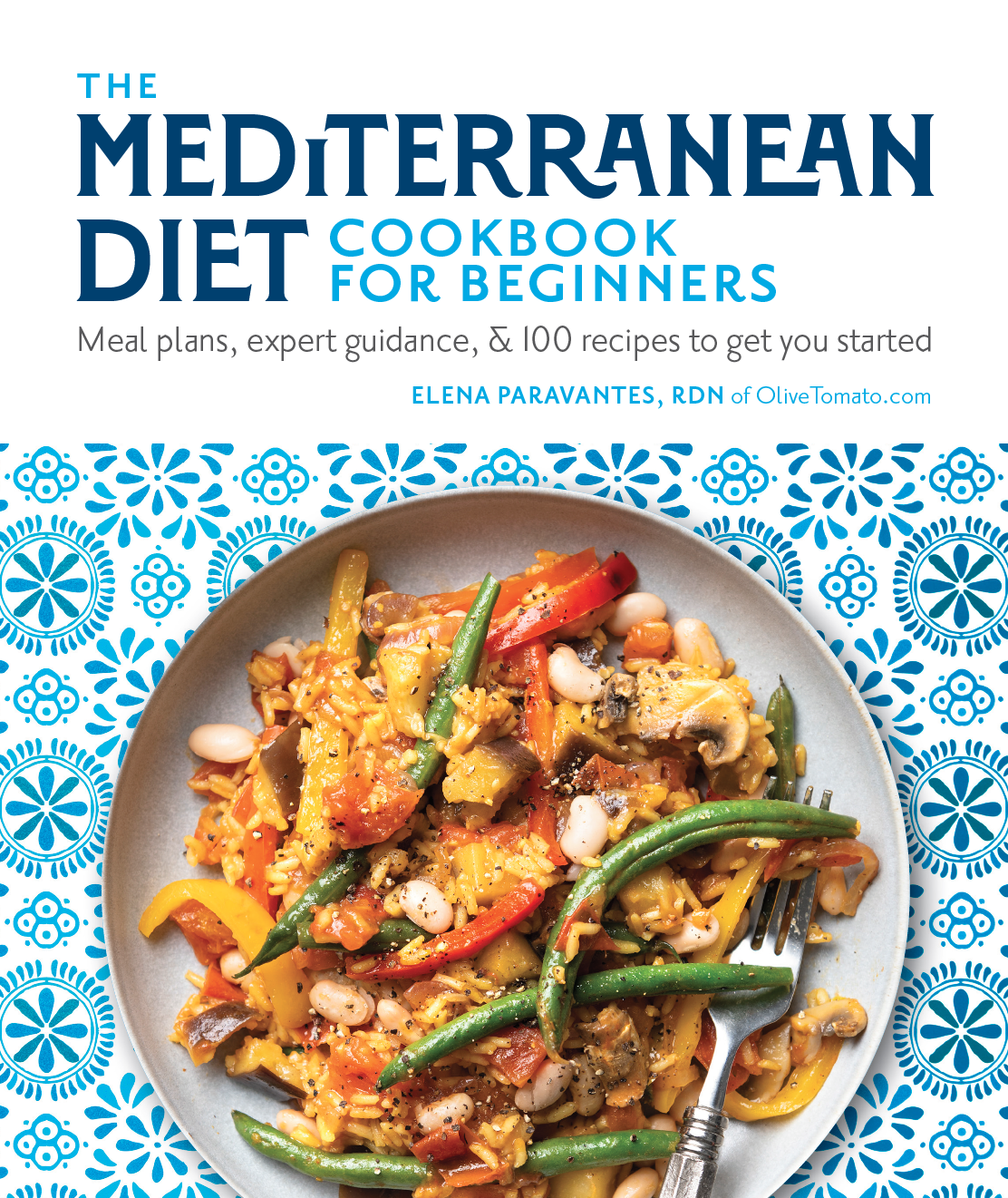
There are many Mediterranean diet cookbooks out there. However, the majority are written by individuals who have no experience or knowledge of the diet and do not contain recipes that are in line with Mediterranean diet principles nor are they in any way authentic. As a person who has been raised on the diet and a Nutritionist, my book is the ideal cookbook and guide for anyone who either wants to start a Mediterranean diet (and lifestyle) or add 100 authentic Mediterranean diet recipes (none of those westernized recipes) to their collection. The book includes 100 recipes, a 2 week menu plan, a detailed food list, advice and tips for living an authentic Mediterranean lifestyle based on my life-long experience who has been raised on this diet and lifestyle.
Get your copy >> The Mediterranean Diet Cookbook for Beginners
SAVE FOR LATER AND PIN IT!
More Resources to Help You Start the Mediterranean Diet
Photo by Elena Paravantes © All Rights Reserved

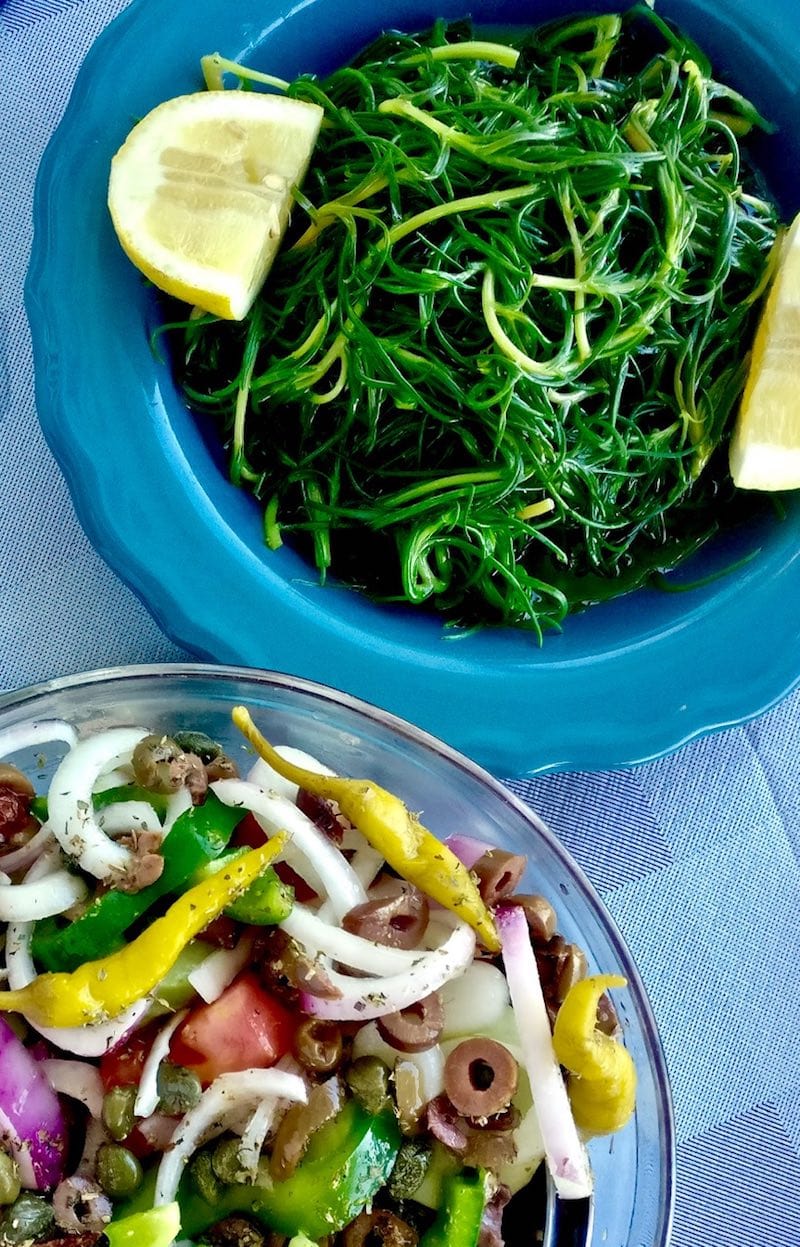

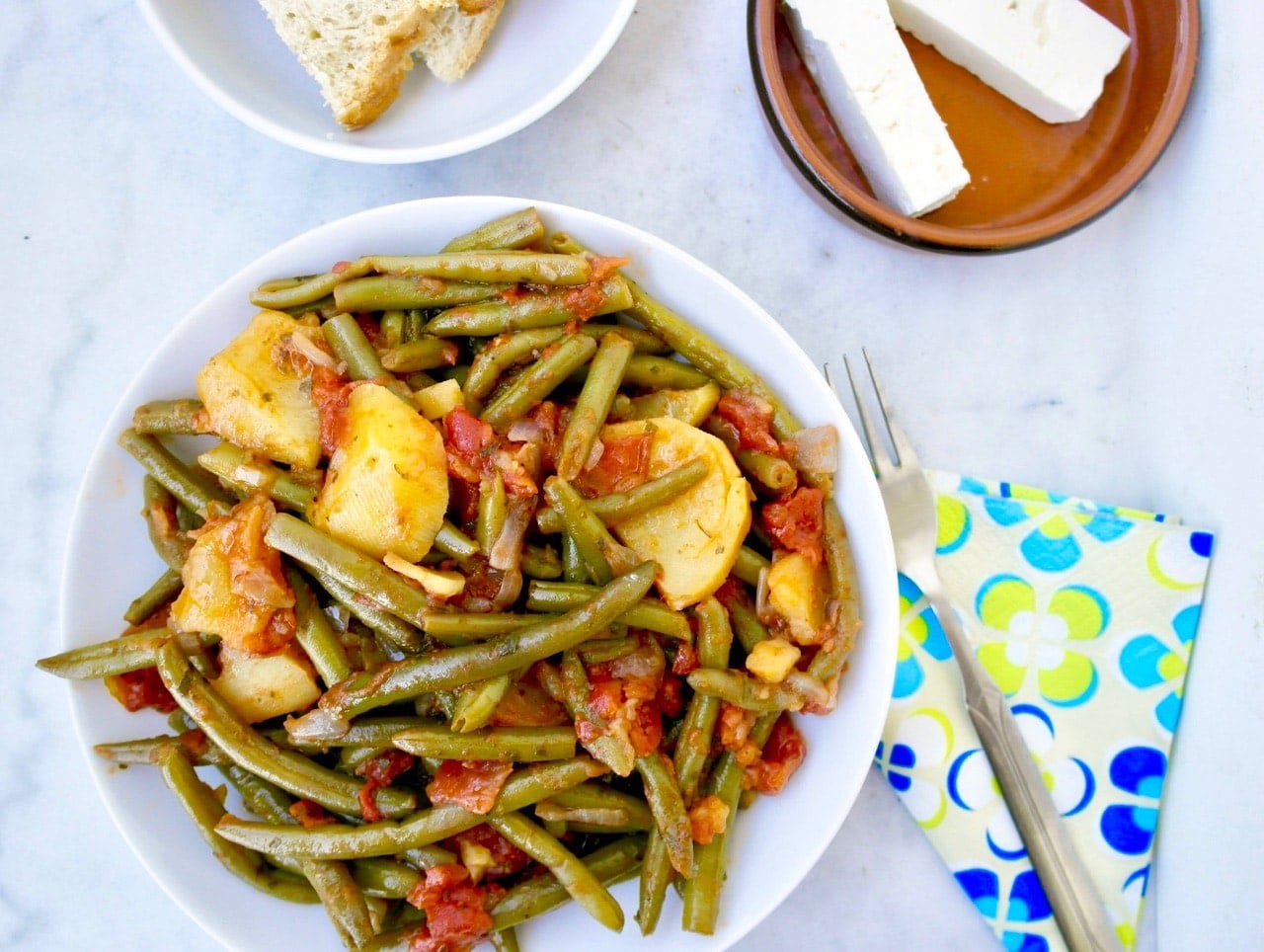
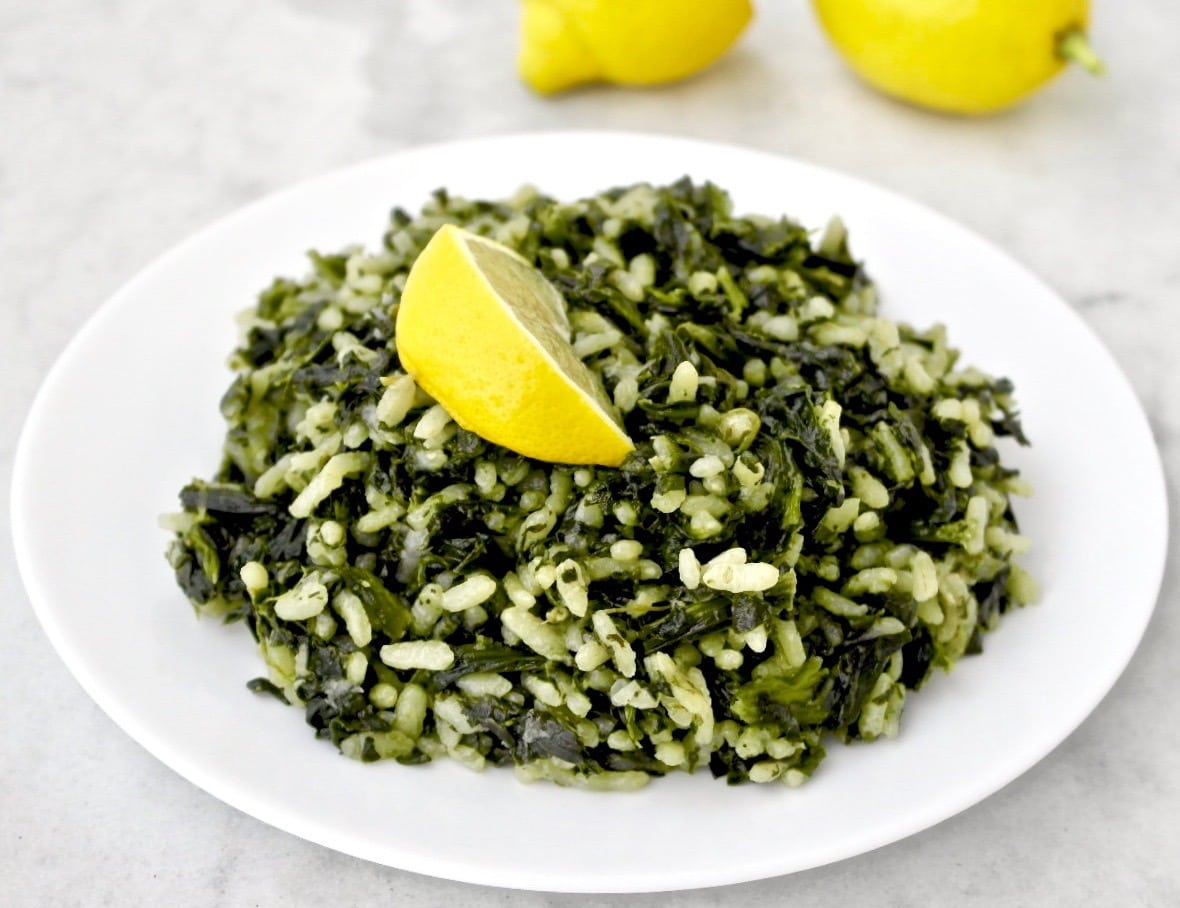
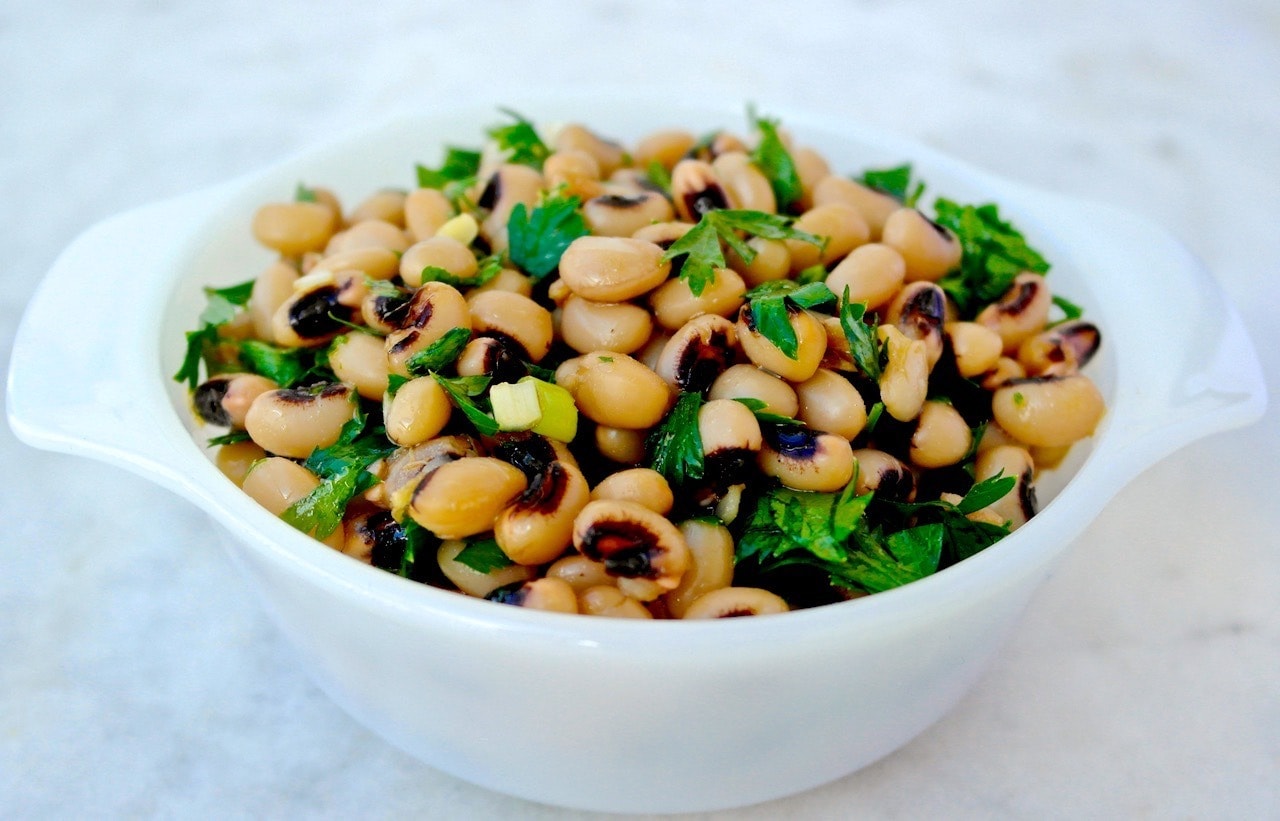
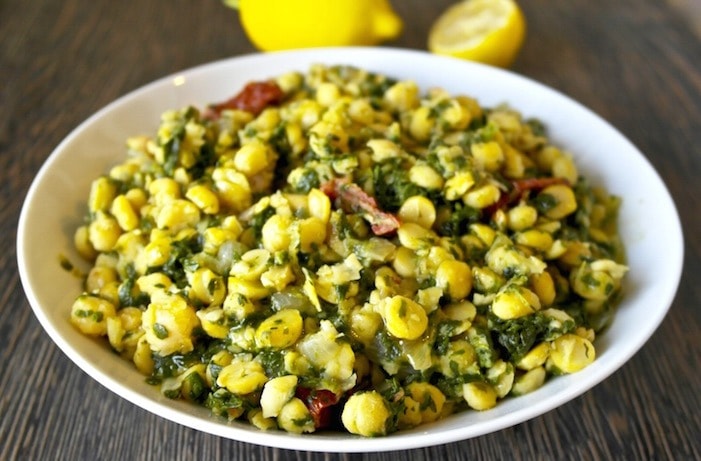
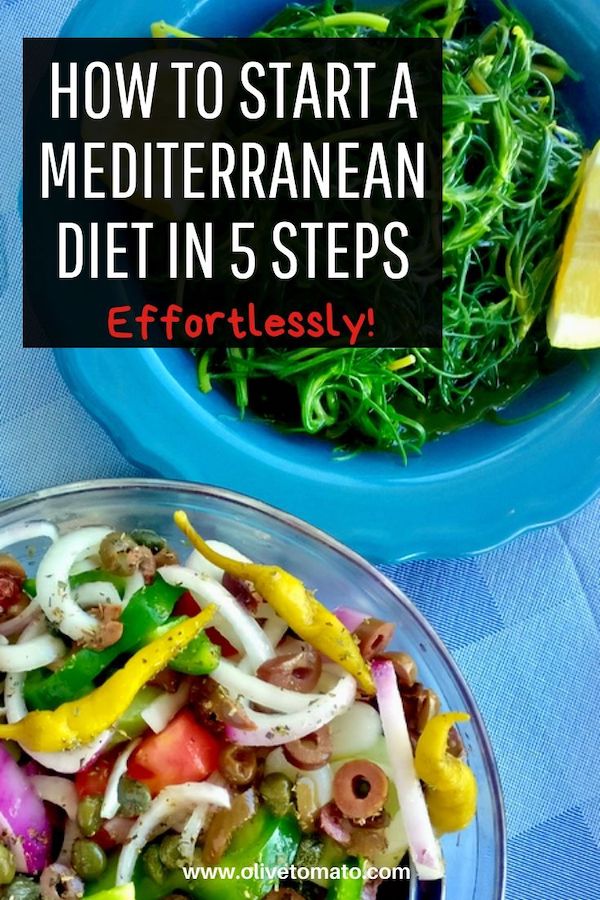
I want to follow the Mediterranean diet but they have me diagnosed with IBS. I have stomach issues if I eat beans, chickpeas, dairy and gluten. My question is am I able to omit beans and chickpeas and use gluten free bread? I also have to watch cheese intake because of dairy so I do not put feta on many of the recipes.
I am a Type 1 diabetic with gastroparesis and sarcoidosis. I also have degenerative bone disease (early stage) and arthritis setting in and chronic inflammation. Is there a trick with cooking the legumes that helps reduce the gas and bloating? I want to try this diet as I know I would benefit in more ways than one but I do have to consider my digestive issues.
I’m no expert, but my Spanish friend adds laurel leaves to her cooking and removes before eating specifically because she suffers from bloating and gas. Worth a try?
Laurel leaves are poisonous to humans and animals, I think you mean bay leaves.
I have heard that they the Mediterranean-diet is good to help a fatty liver. Do you agree?
Hi Elena,
HI Elene,
I am glad to find this blog. I have some medical issues, and I have to follow an anti-inflammatory diet. I have searched around, and The Mediterranean diet is the best. I am new in this area, and I do not have a clue how to start. Can you please guide me on it?
Thanks you
Hi Conny! Welcome! You can start with this post: https://www.olivetomato.com/5-easy-ways-to-transition-to-a-mediterranean-diet/ and head over to https://www.olivetomato.com/med-diet-101/ for numerous guides.
Hi Elena! Just discovered your site with so much great info. As you recommended, I wanted to get started with the staples and it is so chilly here today, so I made the spinach rice. So delicious and easy! This will definitely be a new comfort dish for me! Thank you!
Hi, I agree that red meats should be eaten rarely, if at all, but in the Mediterranean diet fish can be eaten more often than just once a week. There are so many different varieties of fish that provide health benefits.
In answer to Chris Lewis, Avocado oil is excellent, especially when added to salads
I use Avocado oil pretty exclusively, is it a good substitute for Olive oil? I like it in cooking for it’s high smoke point as opposed to Olive oil’s low smoke point. I assume for all of the salads and such I would go ahead and add the olive oil?
Thanks so much!
Hi Chris, Extra Virgin Olive Oil actually does not have a low smoke point and can be used for all cooking needs. Here are some articles you may find useful: https://www.olivetomato.com/5-ways-you-are-using-olive-oil-wrong/
https://www.olivetomato.com/5-facts-about-olive-oil/
https://www.olivetomato.com/how-to-use-olive-oil-to-get-the-most-benefits/
I have a few questions as my husband and I are just now reading and looking into this way of eating. He is Type 2 diabetic and was recommended to us. However, I am wondering if we can add a few things along the way without really messing up. I did read where someone asked you about eating avocado and you said that it was not on the diet just because it is not something grown in that area but could include it. Neither of us have any ties to Greek food and I grew up mostly eating mixtures of all kinds, Asian, Mexican, Italian, etc. I am a vegetarian so I will love the majority of this food. But I also love black beans and other Mexican faire. Is it possible to include them in some dishes? We eat a lot of blueberries and strawberries and again not sure if they are left off due to what is grown in that area? I have read where you have talked about how Americans have westernized this diet and I am not sure if what I am asking is doing that or not? I do love some foods that are not listed and that is why I am asking, although the majority of them I eat in some capacity. I love your recipes and am excited to start this plan, I am a little concerned about the cooking time once school starts again (I am a teacher) though. We plan on starting this way of eating in about a week so I have time to try cooking meals and after we read and study some.
Hi Valerie, Thank you for your message. I would say, that whatever fruit and vegetables are in season in your area are fine. The fats you add and the method of cooking is what makes a difference. In regards to Mexican food, all beans are recommended. If you want a specific Mexican dish, go ahead and have it, as I’ve mentioned before I recommend the the 80/20 rule. In other words eat Mediterranean style 80% of the time. Regarding time spent cooking, I cook a lot of the vegetable casseroles during the week, they do not require much prep work and they taste better the next day, so I make them the day before.
Thank you for your suggestions. Great about the Mexican food too. Thank you as that makes it much easier knowing I am not limited in only what is on the list. Valerie Doerfler
You are welcome Valerie!
When you say chicken fish or red meat once a week, does that mean for one meal. Example the day you have chicken, do you have it for lunch and dinner or only dinner? Or maybe the amount is more important, say 8oz of meat that could be split into two 4oz portions? Thanks!
Hi Chelsea, It means one meal. Yes you could divide the meat into smaller portions.
Kalispera Elena,
I’m a Greek Canadian who grew up eating mostly traditional Greek island Fare. But fairly recently (actually happened a few years after switching to a vegan diet) I was diagnosed with pernicious anemia with reduced gut intrinsic factor and my dr noticed I have an incredibly hard time getting plant proteins (I have a hard time with absorbing all protein but animal protein absorbs much better, missing a few meat meals can leave me anemic very quickly) my doctor has recommended eating red meat at least every other day and at the least chicken ( or fishX2 but I’m not so much a fan i take a fish oil supplement instead) once a day what can I better do to incorporate my traditional diet into these guidelines?
Hi Anastasia, Treatment of pernicious anemia varies, if it is due to lack of intrinsic factor than you would need supplementation, not just diet changes. If it is due to your diet, than adding these foods you mention can help. If that is the case I would incorporate small amounts of meat, chicken, fish and eggs as a supplement to mainly vegetable based meals. However, as it is not clear whether it is due to diet or intrinsic factor, I would recommend you get that clarified and also visit a Registered Dietitian Nutritionist who can guide you.
Fish is actually a huge part of the Mediterranean Diet, as is chicken, turkey, and lamb. Red meats are what is bad and not really a huge part of the diet. Fish is a huge part of the diet, as I discovered from the many websites I have gone on to study and learn about this diet, it helps get the omega-3 fatty acids and proteins.
Chick peas aren’t just a carb; they are also very rich in protein. Not Greek, but I’m eating some hummus tahineh I made yesterday. Try them with rice crackers if you have a gluten allergy. Good hummus should be fairly plain.
Chick pea flour also makes great crêpes and flatbreads. The ones I’m familiar with are from the western Mediterranean (southeastern France and northwestern Italy, between Nice and Genoa); I don’t know if anything similar is eaten in Greece or anywhere in the former Ottoman Empire.
There’s more to Mediterranean diet than just insalatas and souvlakis. Since I got gluten allergy, chickpeas are one of my go to carbs.
Thank you Priscilla! I’m not sure about inheriting dietary preferences, we know that many food preferences are learned. but it looks like you may have something from your father.
Hello.
I’ve just discovered your site and have been reading for the past few hours. Good stuff!
I’ve a question…
Do you think dietary preferences are inherited?
I absolutely did not grow up eating any thing Greek or Mediterranean. My mother is the daughter of a butcher (gag) and was forced to eat the most disgusting meat and body parts, along with a heavy European (German and Czech) influence, coupled with American things like meatloaf.
Being on my own for many years now, I’ve discovered Mediterranean food and am obsessed with it. I tell my husband, who eats much like what I grew up with, that “I have to feed my Greek”, and he understands.
I literally mean OBSESSED. I can’t stop shoving Greek food into my face, like it’s a missing link to something. My mother turns her nose up at everything, which is fine. More for me. 🙂
Inherited or no? I ask the question because my sister took a DNA test and found out we’re a small-ish % Greek and Spanish. HUGE surprise!
I suspect these are from my father, who’s up for eating anything. And I’ve got his nose.
Ever thanks!